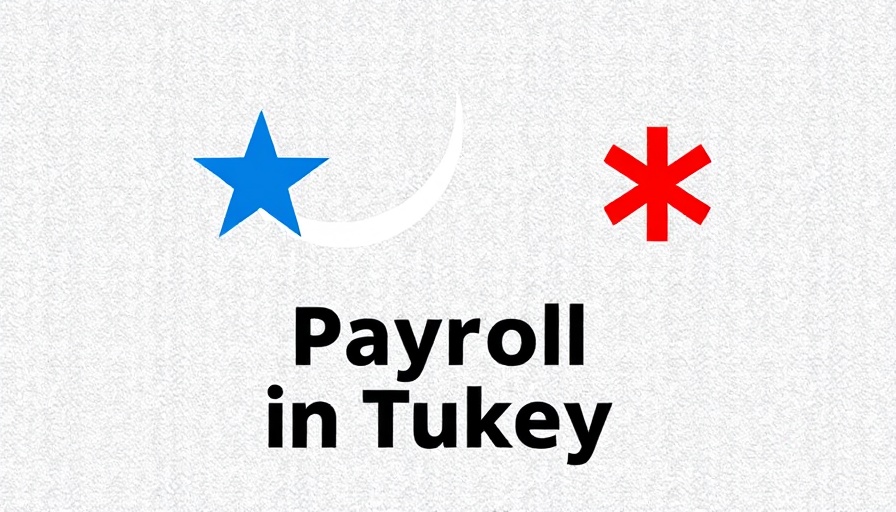
Navigating Payroll Taxes in Turkey: A Comprehensive Overview
As a business owner seeking growth opportunities in Turkey, understanding the nuances of payroll taxation is essential. With its strategic position between Europe and Asia, Turkey presents an attractive landscape for companies. However, complexities in local payroll regulations mean that confusion is common among employers. This guide simplifies payroll in Turkey for 2025, highlighting the key contributions and compliance measures needed to navigate this landscape effectively.
Understanding Social Security Premiums in Turkey
The Social Security Premium (SGK) consists of mandatory contributions for both employers and employees, covering essential areas such as healthcare and pensions. For instance, employers contribute a total of 20.5%, while employees contribute 14%. Understanding these rates—including exceptions depending on job risk class—can make a significant difference in budgeting for employee salaries. Moreover, if employers comply with SGK payments, they may receive a 5% discount on costs, beneficial for businesses focused on growth.
Unemployment Insurance: A Safety Net for Employees
Investing in unemployment insurance is not just a regulatory requirement but a standard for fostering a supportive work environment. The unemployment insurance rate involves conjoined efforts from the employer, employee, and the government, totaling 4%. Ensuring employees feel secure in potential job transitions enhances company culture and fosters loyalty.
Income Tax Calculations: Essential for Financial Planning
Employers must also be familiar with Turkey's progressive income tax brackets for 2025 to adequately calculate employee withholdings. Ranging from 15% to 40%, these brackets reflect Turkey’s approach to tax responsibility and can influence business expenses and employee satisfaction. Being transparent about how these deductions impact net salaries can contribute positively to workplace morale.
The Importance of AI in Payroll Processing
In a rapidly evolving business landscape, integrating AI into HR practices can streamline payroll processes. AI can effectively handle payroll calculations, ensuring accuracy while minimizing human error. As businesses scale, leveraging technology like AI in HR operations can lead to significant efficiencies, enabling leaders to allocate resources better and focus on strategic company culture development.
Emphasizing the Value of Knowledge
Staying informed about payroll compliance is not merely about avoiding penalties; it’s about enhancing the overall stability of your organization. For businesses generating $2M to $10M annually, understanding these intricacies can make the difference between sustaining or scaling operations. Knowledge empowers effective hiring decisions and helps cultivate a strong leadership team.
What You Can Do Now
Given the complexity of payroll in Turkey, business owners should take actionable steps to ensure compliance. Consider elevating your HR operations through training, utilizing technology, and seeking expert guidance where needed. Building a resilient team starts with informed leadership—so equip yourself with the knowledge to lead with confidence.
 Add Row
Add Row  Add
Add 



Write A Comment